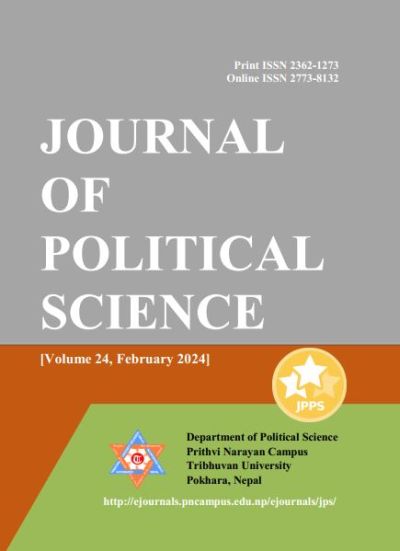Beyond Borders: A Review of Diaspora and Female Immigrant Experience
DOI:
https://doi.org/10.3126/jps.v24i1.62861Keywords:
Diaspora, South Asian female immigrant, intersectionality, autonomy, family disputeAbstract
This article reviews the conceptualization of the diaspora and the inclusion of female immigrants’ experiences in diaspora studies. It surveys the changing notion of diaspora with the inclusion of varied groups of immigrants, including females. Then, it examines the previous research about female immigrants’ experiences, particularly focusing on South Asian female immigrants. Over time, the conceptualization of the diaspora has evolved from a perspective focused on victimhood to a more socially constructed view of identity formation that transcends the binary distinction between home and host countries. This broader conceptualization of diaspora includes various forms of transborder migration and settlement, allowing for a more inclusive examination of the experiences of female immigrants. In the beginning, women immigrants were often equated with male immigrants. However, as time passed, scholars started linking gender concerns with additional factors like social class, nationality, and ethnicity. In this context, the research on the experience of South Asian female immigrants revolves around changing gender roles and family dynamics, including contradictory aspects of whether migration reinforces domination or provides autonomy to South Asian female immigrants.
Downloads
Downloads
Published
How to Cite
Issue
Section
License

This work is licensed under a Creative Commons Attribution-ShareAlike 4.0 International License.




